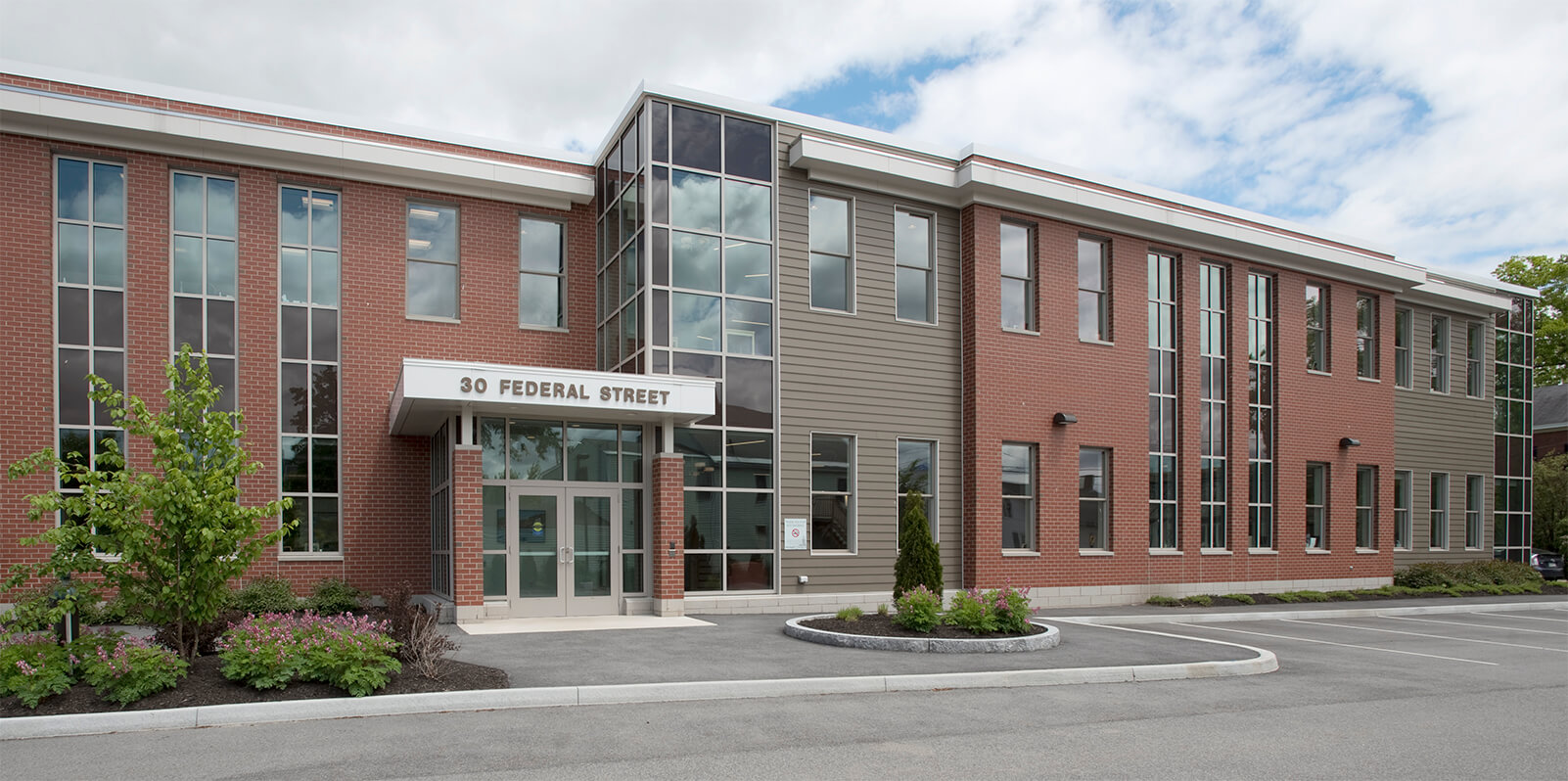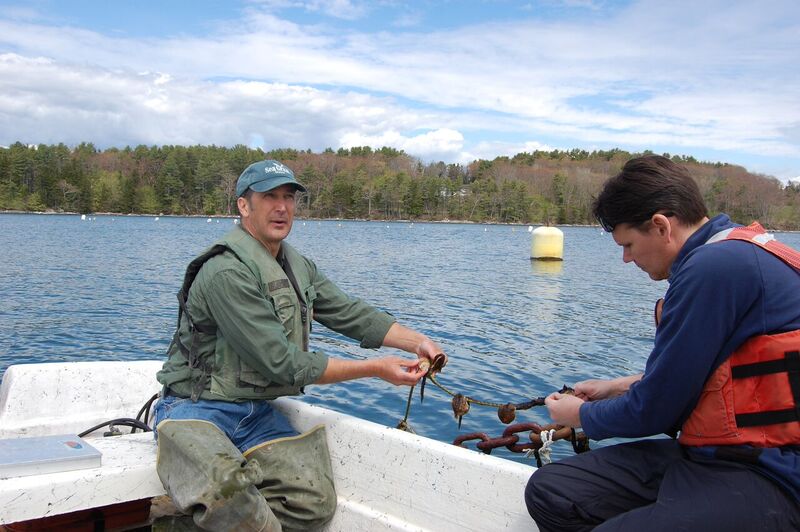May 20, 2016
MTI Grant Supports Maine Scallop Farming Project & Knowledge Exchange with Japanese Fishermen
May 20, 2016–Coastal Enterprises, Inc.’s (CEI’s) Fisheries Project was recently awarded a $134,189 MTI Cluster Grant to purchase and test three scallop aquaculture machines from a Japanese company as part of an on-going collaborative effort to develop scallop farming in Maine. For the past six years, CEI has been working in partnership with Maine Sea Grant and the Friends of Aomori,[Japan], to further the development of a Maine scallop farming industry by leveraging a sister-state relationship Maine has had with Aomori Prefecture since 1994.
Over a two year period CEI will work with the Portland based Maine Scallop Company to demonstrate the financial feasibility of growing sea scallops using the Japanese “ear-hanging” technique. Receipt of this grant will allow CEI to complete one of the most important elements of the project, the purchase of equipment that will reduce labor and increase volume to make scallop farming profitable for Maine shellfish farmers. In addition, part of the MTI funds will be used to explore the possibility of establishing an equipment sharing agreement with other shellfish farms.
“MTI’s grant and the subsequent purchase of the three machines will allow us to take our scallop farming demonstration project to a commercial level,” said Peter Stocks, co-owner of the Maine Scallop Company. “As with any business, scale is key to generating a solid financial return – this equipment will allow us to mechanize much of the front end labor required to suspend and grow scallops in the water column. Another machine will clean the biofouling off of scallop shells to help increase growth rates. We anticipate the equipment drastically reducing our labor costs. It’s the equivalent of going from tilling soil by hand to tilling soil with a tractor.”
In Maine, wild scallop seed “spat” is collected in the fall and transferred to trays and bottom cages to confine and protect juveniles from predators as they grow. To date in Maine, the growing of sea scallops to harvest size has primarily been conducted in cages and trays. The ear-hanging method used in Japan is far superior because it allows scallops to benefit from maximum flows of seawater and, subsequently, nourishment from phytoplankton, resulting in faster growth. The ear-hanging method is more labor intensive and without automation is cost prohibitive. Maine Scallop Company currently has a crop of scallops on ear-hung lines in Casco Bay and growth rates have exceeded expectations.
Further up the coast on the Damariscotta River—the heart of Maine’s farmed oyster industry—Maine Sea Grant’s Dana Morse is observing growth rates, biofouling, water temperature and ultimately assessing the yield and market value of ear-hung scallop meats. “Since early March of this year we are already seeing very strong growth rates with scallops that are deeper in the water column. This will probably slow down as the water warms but we’re very optimistic,” said Morse. Additional ear-hung grow out trials are scheduled to begin on other farms this summer.
Sea scallops are among the most lucrative commercial marine species caught in the United States. In 2015, the Maine wild caught scallop season witnessed prices at $12 – $16 per lb. Scallops are a high-value crop, they grow well in Maine’s coastal waters, and a growing market exists for the already half-billion dollars’ worth of scallops harvested from the US wild fishery. Maine’s established shellfish aquaculture industry is primarily made up of oysters, mussels and clams. “We see this as an opportunity to add another species to what Maine growers are already offering. I’m growing oysters now, if the project goes as planned, scallops will offer a way to firm up the economics of my business,” said Dr. Mark Green, co-owner of the Maine Scallop Company and Professor at Saint Joseph’s College.
In October of this year, a twelve member group of shellfish aquaculture professionals from Maine will visit Japan for intensive hands-on learning about Aomori’s well established scallop aquaculture industry. The intensive one week tech transfer will include visits with a series of marine scientists, private business, fishing cooperatives and government officials, as well as the company from which CEI will purchase the three automated machines.
This international technology transfer will allow Maine to benefit from the well established Japanese method of farming sea scallops. “Japan has been successfully growing and harvesting sea scallops for 85 years,” said Hugh Cowperthwaite, Director of Fisheries Project at CEI and the driving force behind this initiative. “Trial and error coupled with research and development can be prohibitively expensive, this project will allow us to witness first hand the successful technology used in Japan and with the purchase of the machines, we will then be able to apply what we’ve learned and bring the opportunity back to Maine.” The expected result will be that Maine shellfish aquaculture companies will benefit from a reduction of labor costs, and an increase in the scale and profitability of scallop farming.
The Maine Department of Marine Resources currently lists 110 standard aquaculture lease holders in Maine, 28 of which are permitted to grow scallops. Yet only a handful of the farms are presently working with scallops. “We believe a scallop industry could thrive in Maine if we introduce, refine and adapt the Japanese technology currently in use. Sea farmers and fishermen are looking for ways to diversity their income and continue to work on the water. It’s no secret that some of Maine’s wild caught fisheries continue to decline and as an industry we are very dependent on the lobster fishery. On top of that, about 90% of the seafood consumed in the United States is now imported. We need to be proactive and address the challenges before us” said Cowperthwaite.
About Maine Sea Grant
The Maine Sea Grant College Program and the University of Maine Cooperative Extension are one of 33 NOAA Sea Grant programs throughout the coastal and Great Lakes states. Dana Morse is based at the Darling Marine Center in Walpole on the Damariscotta River. Dana’s expertise includes education, outreach, technology transfer and applied research programs in aquaculture and commercial marine fisheries. For more information visit http://www.seagrant.umaine.edu/
About Maine Scallop Company
Maine Scallop Company is a joint business of Dr. Mark Green, a professor of Oceanography at Saint Joseph’s College and the owner of Basket Island Oyster Company. Peter Stocks is the Executive Manager of Calendar Island Mussel Company. Together Peter and Mark have been growing scallops in Casco Bay using the “ear-hanging” technique over the last two years.




